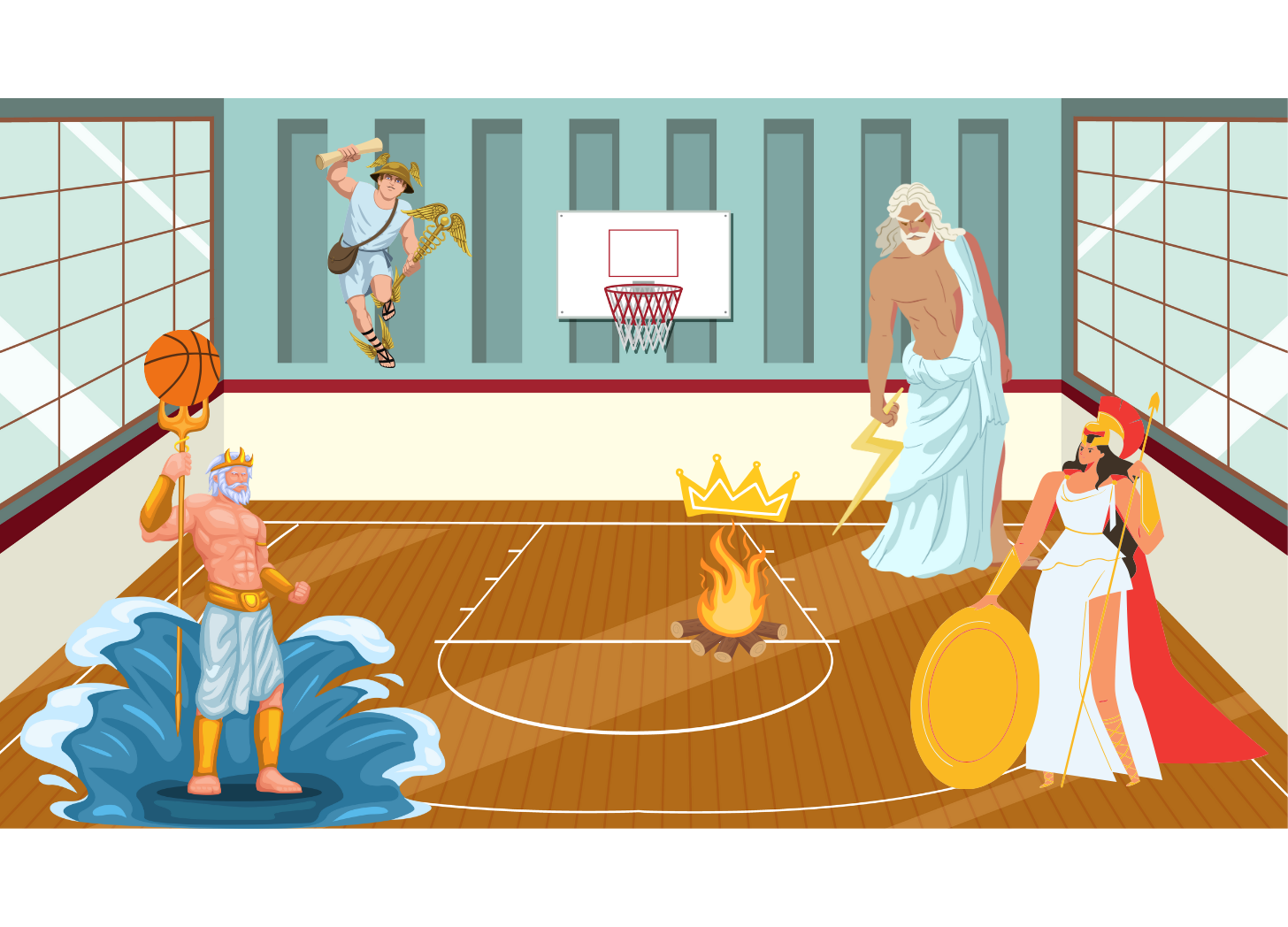The Cavs beat the Indiana Pacers on Friday to secure a playoff berth. When Orlando lost to Philly shortly afterwards, the Wine and Gold also locked up home court advantage in the first round. They will play the upstart Magic in game one this coming Saturday.
Friday’s wire-to-wire 129-120 win had almost everything Cleveland has been missing since the All-Star break. First and foremost, Donovan Mitchell was fluid and relentless in his attack of the paint. He scored 33 points. Darius Garland, often and rightly admonished for poor play in the clutch this season, hit two huge three pointers in the waning minutes, including a stepback to push Cleveland’s tenuously held lead to six points with some fifty seconds left. The Pacers never stopped throwing punches. And the Cavs, hopefully relearning an old habit, responded every time. With everything on the line, Cleveland’s stars showed up, Jarrett Allen was absolutely dominant (nothing new), the offense quivered with life, and the good vibes returned to the Cavs.
But then on Sunday, in the regular season finale, playing for the two seed against a tanking Charlotte Hornets squad, the Cavs lost the fourth quarter 32-14 en route to a 120-110 boo-inspiring defeat.
If you didn’t watch the game though, don’t panic.
The vibes didn’t board a bus out of town. The Hornets didn’t pick pocket DG’s confidence or squash Evan Mobley’s swagger. Nobody, except for impressive-but-little-used rookie Craig Porter Jr., got hurt. The Cavs sat most of their best players for the game, and all of their regulars for the tepid fourth quarter.
But even the Cavs’ bench should have been enough against miserable Charlotte, right? Not without a point guard. Porter Jr. sprained his ankle nine minutes into the game, forcing J.B. Bickerstaff to send out a lineup of Tristan Thompson, Damian Jones, and two-way players Isaiah Mobley, Pete Nance, and Emoni Bates for the end of the fourth quarter. They were, of course, outscored 18-2. Short of Bates, who had six turnovers, none of those players can handle the ball, much less generate offense.
So it’s no surprise the Cavs lost.
Which is where the heated debate begins.
As the lead was slipping from Cleveland’s fingers and then out of sight, the Magic were routing then-three-seed Milwaukee, and the Bulls clung to a lead over two-seed New York. If those results held, the Cavs would leap back into second place in the East and a daunting first round matchup with either Philadelphia or Miami. But then New York, who played Donte DiVincenzo 53 minutes, came back and beat the Bulls in overtime, meaning a Cavs victory would have been good enough for the three seed, a first round square dance with the Pacers, and a potential second round matchup with someone not named the Boston Celtics.
So did the Cavs perform some Promethean feat in the face of the Basketball Gods? Did they throw the game to avoid Philly or Miami, or because they preferred the Magic over the Pacers?
Joe Vardon penned a blistering piece in the Athletic (apologies for the paywall) labeling the game “an organizational failure.” On the call of the Knicks game, ESPN’s Mark Jones and Doris Burke said they felt an abundance of trepidation (how’s that for a Jones impression?) about messing with the unwritten values of sport by angling for seeding. The Ringer’s Kevin O’Connor laid out a plan on X that the top-seeded teams should be able to choose their first round opponents to disincentivize intentional losing.
But despite all the hooplah, I don’t think the Cavs exactly lost on purpose.
Did they care about winning? Certainly not very much. And with the slight chance of playing Philly or Miami with a win, I don’t blame them. But the plan from the get go–not uncommon on the last day of the season–was to prioritize health by sitting or playing the starters limited minutes. In fact, one could argue that monitoring scores around the league and then deviating from that plan is gamesmanship of a different degree. As Bickerstaff noted after the game, it’s also the kind of move that can lead to more injuries.
Ultimately though, does this all matter? Is it worth an op-ed or a rule change, or even a Substack newsletter? Should the Cavs care about pissed off fans or disillusioned beat writers? Should their view of themselves be diminished by a coach who played it super safe? At this point, probably not.
Because ultimately what matters is beating the Orlando Magic.
Here’s hoping that’s all the Cavs focus on this week. That, and that Cleveland fans and writers didn’t just hand the young Magic some serious bulletin board material by suggesting this series is going to be easy. It’s going to be a rock fight.
More about the matchup on Friday.
Cheers, and go Cavs.




